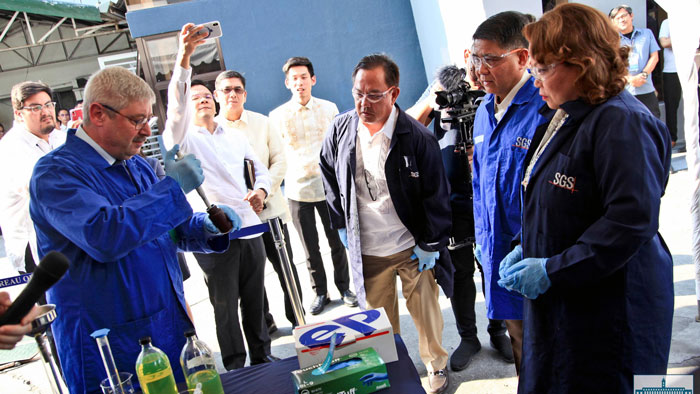
Implementation of Philippine fuel marking program to start in March
The official launch of the Philippine Fuel Marking program was held last week, led by Philippine Bureau of Customs Commissioner Rey Leonardo Guerrero, Bureau of Internal Revenue (BIR) Deputy Commissioner Arnel Guballa, and Finance Undersecretary Antonette Tionko. The nationwide implementation of the fuel marking program will start next month.
The implementation order still has to be issued, however, as it is still pending approval by the Department of Finance (DOF).
The objective of the program is to curb oil smuggling and generate revenues which are currently lost due to misdeclaration or illegal importation. The customs bureau projects that the fuel marking program will generate revenues of PHP27 billion (USD518 million) during its first year.
The marking of petroleum products shall be mandatory within five years from the effectivity of Republic Act (RA) 10963, or 2022 at the latest. Dubbed the Tax Reform for Acceleration and Inclusion (TRAIN) Law, TRAIN was signed by Philippine President Rodrigo Duterte in December 2017 and took effect the 1st of January 2018.
Among the provisions of TRAIN is the imposition of excise tax on petroleum products, including lubricating oils and greases, effective January 1, 2018, which will gradually increase every year up to January 1, 2020. However, the scheduled increase may be suspended if the average price of Dubai crude for three consecutive months, i.e., October to December, prior to the scheduled increase in January of each year reaches or exceeds USD 80 per barrel.
In a press briefing on 6 February, Guerrero said the customs bureau is on track with implementing the program.
The joint venture of Swiss-based SICPA SA and SGS Philippines, which won the government bidding, will implement the fuel marking system. According to TRAIN, “the government shall engage only one fuel marking provider who shall, under the supervision and direction of the Commissioners of Internal Revenue and Customs, be responsible for providing, monitoring, and administering the fuel markers, provide equipment and devises, conduct field and confirmatory tests, and perform such other acts incidental or necessary to the proper implementation of the provisions of this Act: Provided, That the fuel marking provider shall provide an end-to-end solution to the Government, including the establishment and operation of testing facilities that are certified to ISO 17025.”
All costs pertaining to the procurement of the approved fuel markers will be shouldered either by the refiner, manufacturer or importer of the petroleum products, although the law allows the government to subsidize the cost of the official fuel markers during the first year of implementation of the program. Gasoline, diesel fuel and kerosene are included in the program. Excluded from the program are Jet A-1, avgas, and liquefied petroleum gas.











